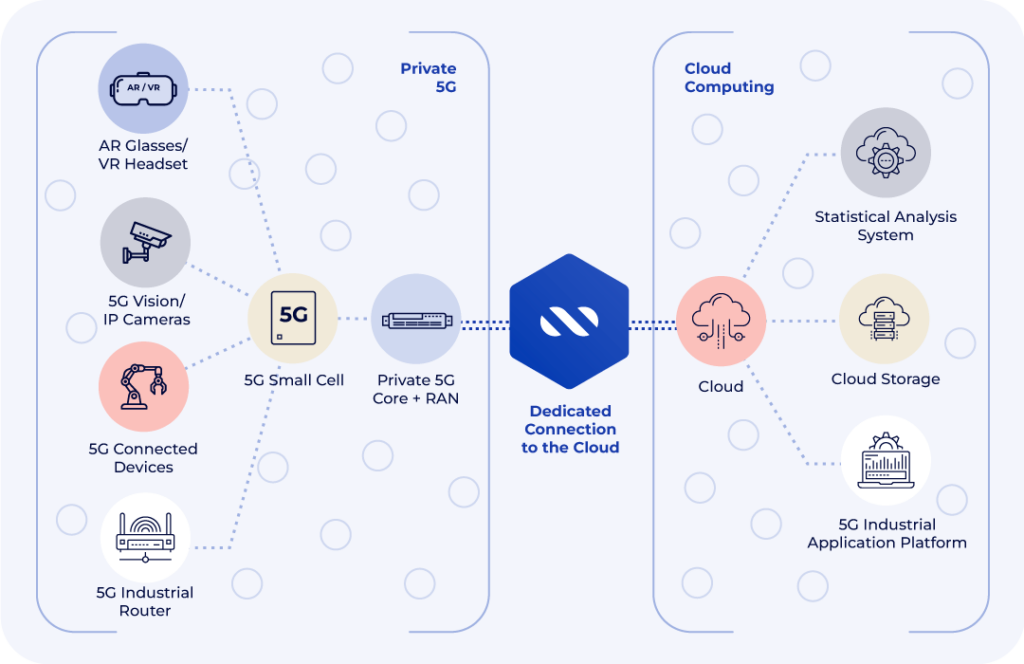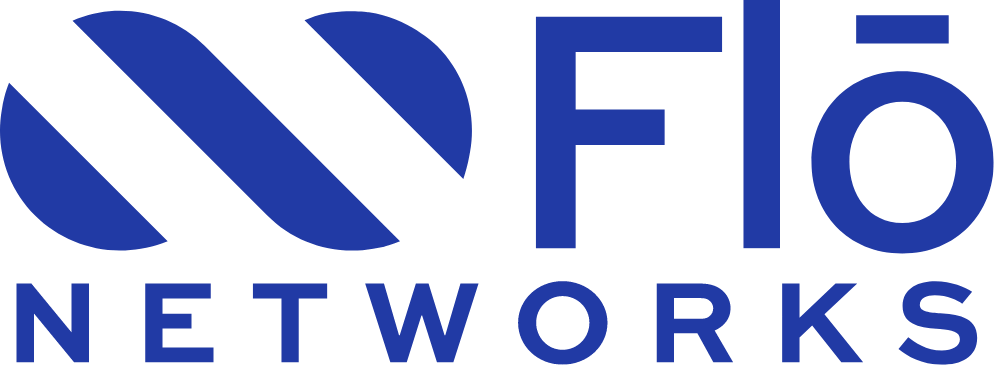As the fourth industrial revolution continues to transform the manufacturing industry, businesses are looking for innovative solutions to improve their operations and processes. Private 5G technology, when combined with state-of-the-art dedicated connections and cloud computing, is emerging as a game-changer for Industry 4.0, providing high-speed, low-latency connectivity, and enabling businesses to leverage the full potential of the internet of things (IoT), artificial intelligence (AI), and other advanced technologies. In this article, we will explore how private 5G technology and cloud computing can work together to revolutionize Industry 4.0 and drive growth and innovation.
What is Private 5G Technology?
Benefits
Private 5G networks can provide businesses with several benefits and enable new business applications on edge and public cloud, including:
High-speed, low-latency connectivity: The technology offers higher speeds and lower latencies than traditional Wi-Fi or wired connections, enabling businesses to process data in real-time and improve their operations.
Massive device connectivity: 5G can support a large number of IoT devices and sensors, enabling businesses to collect and analyze data from multiple sources, such as machines, robots, and equipment.
Customization: Networks can be tailored to specific business needs, enabling businesses to design their network architecture, security protocols, and traffic management to
optimize their operations.
Security: These networks can offer higher levels of security than public networks, as they are not shared with other users and can implement advanced encryption and authentication protocols.
Private 5G Technology and Cloud Computing
Private 5G technology can be used in conjunction with cloud computing to provide businesses with even greater benefits. Cloud computing can provide businesses with storage, computing power, and software applications on a pay-as-you-go basis, enabling them to access advanced technologies such as AI, machine learning, and big data analytics. Private 5G networks can provide the high-speed, low-latency connectivity required for these applications, enabling businesses to process data in real-time and make better decisions.
The combination of private 5G technology and cloud computing can also provide businesses with scalability, enabling them to expand their operations and infrastructure as needed. Private 5G networks can support massive device connectivity, enabling businesses to deploy a large number of IoT devices and sensors, while cloud computing can provide the storage and computing power required to analyze and process the data generated by these devices.
In order to combine these technologies, a high performance dedicated connection to the cloud is needed, to serve as a bridge between the data gathered on site and the analysis and actions made in the cloud, which truly enable the powerful applications of these digital tools.
Applications of Both Technologies for Industry 4.0

5G technology, when combined with Cloud Computing can be applied to various Industry 4.0 use cases, including:
Smart factories: Private 5G networks and cloud computing can enable businesses to implement smart factory solutions that leverage IoT, AI, and machine learning to optimize their operations, reduce downtime, and improve overall efficiency.
Autonomous systems: The combination of these technologies enable businesses to deploy autonomous systems, such as robots, drones, and autonomous vehicles, to automate their processes.
Industrial automation: Private 5G networks can provide high-speed connectivity and low latencies, enabling businesses to implement real-time control and monitoring of their production lines, machines, and equipment. This can help them optimize their operations, reduce downtime, and improve overall efficiency.
Robotics: The use of these technologies can support the massive device connectivity required for robotics, enabling businesses to deploy a large number of robots and sensors to automate their processes and tasks.
Predictive maintenance: Enable businesses to collect and analyze real-time data from their machines and equipment, enabling them to detect potential issues and prevent downtime leveraging cloud’s AI for predictive maintenance.
Quality control: The advantage of massive device connectivity allows businesses to implement real-time quality control by monitoring and analyzing data from their production lines and machines, enabling them to detect defects and improve product quality.
Augmented reality: Private 5G networks can provide the low latency required for augmented reality (AR) applications based in the cloud, enabling businesses to deploy AR tools to train their employees, visualize designs, and perform remote maintenance.
Digital twins: Private 5G networks and cloud computing can enable businesses to create digital twins of their machines, equipment, and products, enabling them to simulate and test different scenarios, and improve their designs and quality.
Conclusion
After the cloud revolution, businesses around the world were able to take massive steps towards optimizing their processes and simplifying their operations. Now, the arrival of Private 5G technology is transforming Industry 4.0, providing businesses with high-speed, low-latency connectivity, and enabling them to leverage the full potential of IoT, AI, and Cloud Computing. As the adoption of Industry 4.0 accelerates, we can expect to see more businesses investing in private 5G networks to improve their operations, reduce costs, and stay ahead of the competition. Private 5G technology is a game-changer for Industry 4.0, enabling businesses to improve their processes, enhance their customer experience, and drive growth and innovation.
Flō Networks is collaborating with Microsoft to provide businesses with a Private 5G Starter Kit, allowing them to experiment with the CBRS band to develop Private 5G solutions linked to the Cloud through high performance connectivity solutions. Find out more about it here.

